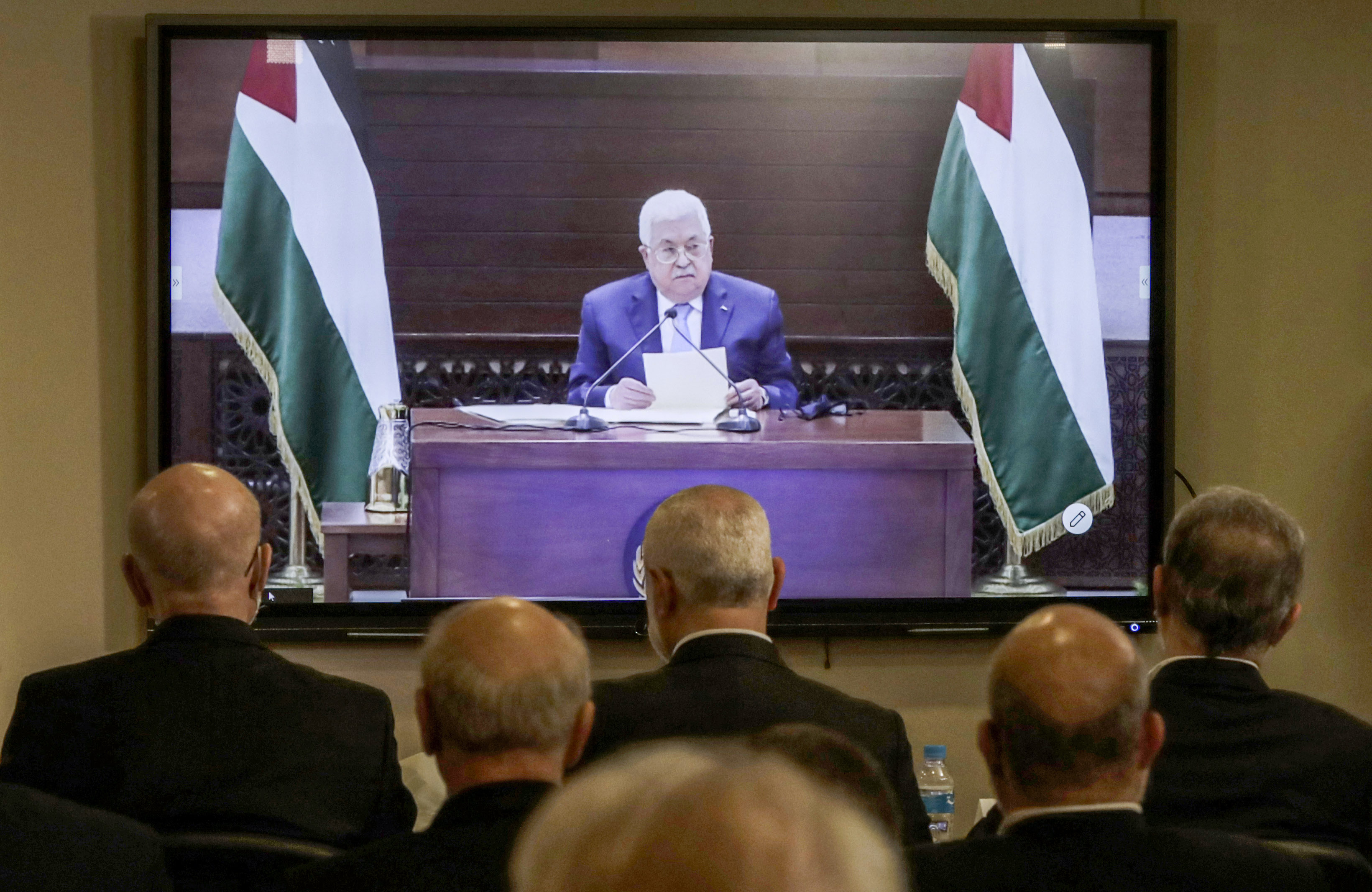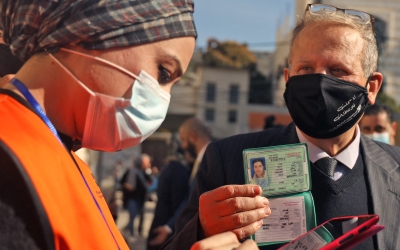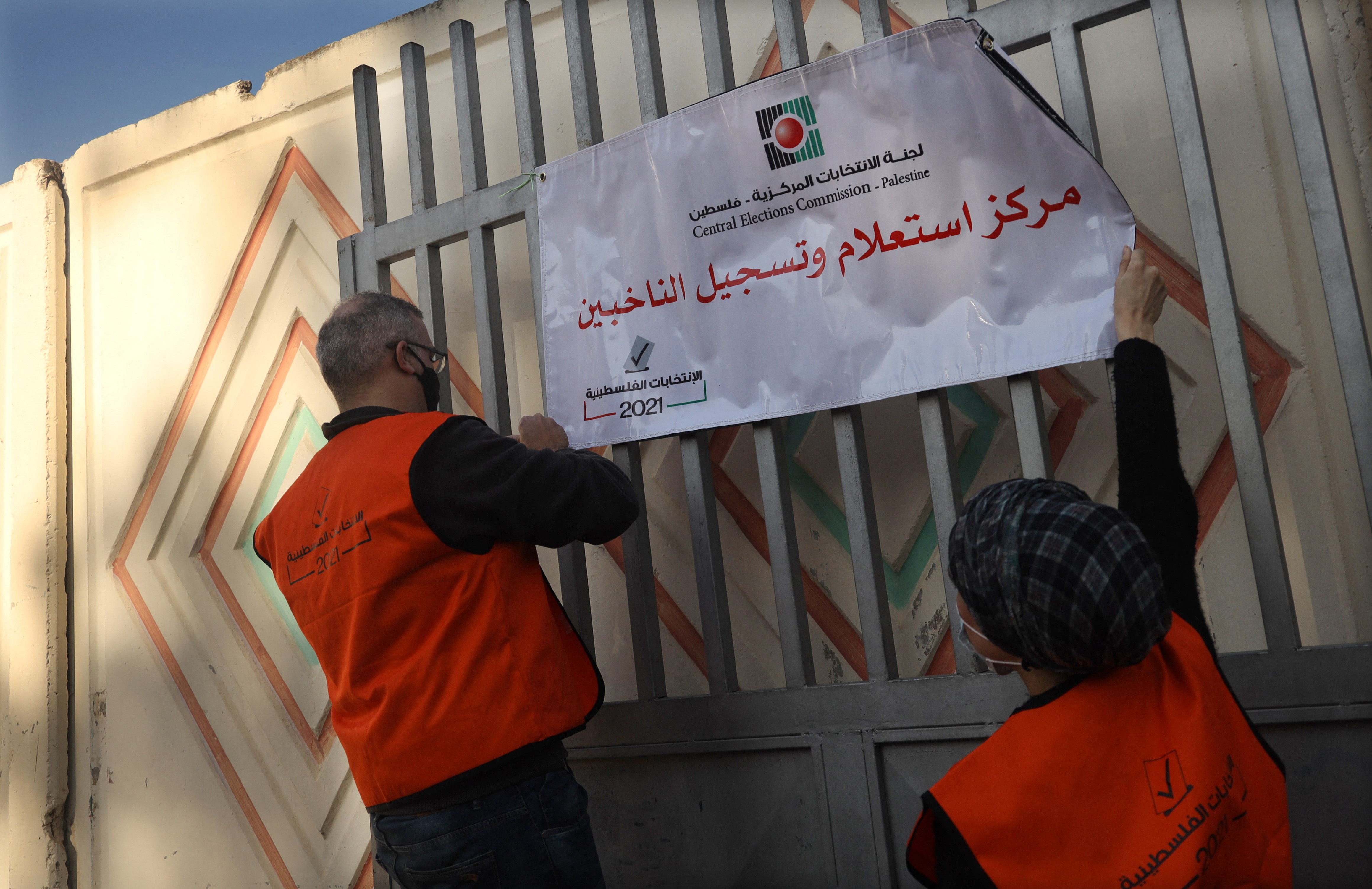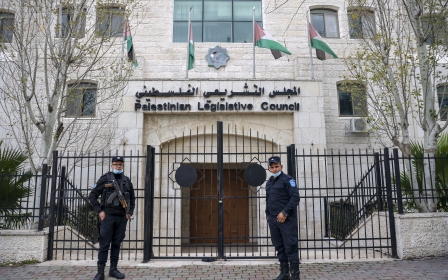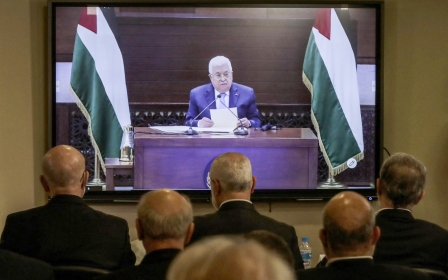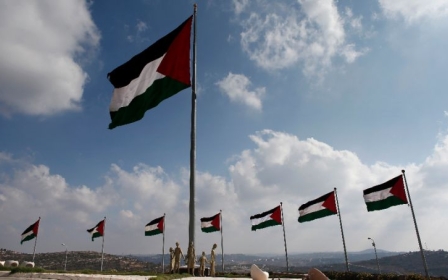Palestine elections: Why is Hamas seeking national unity with Fatah?
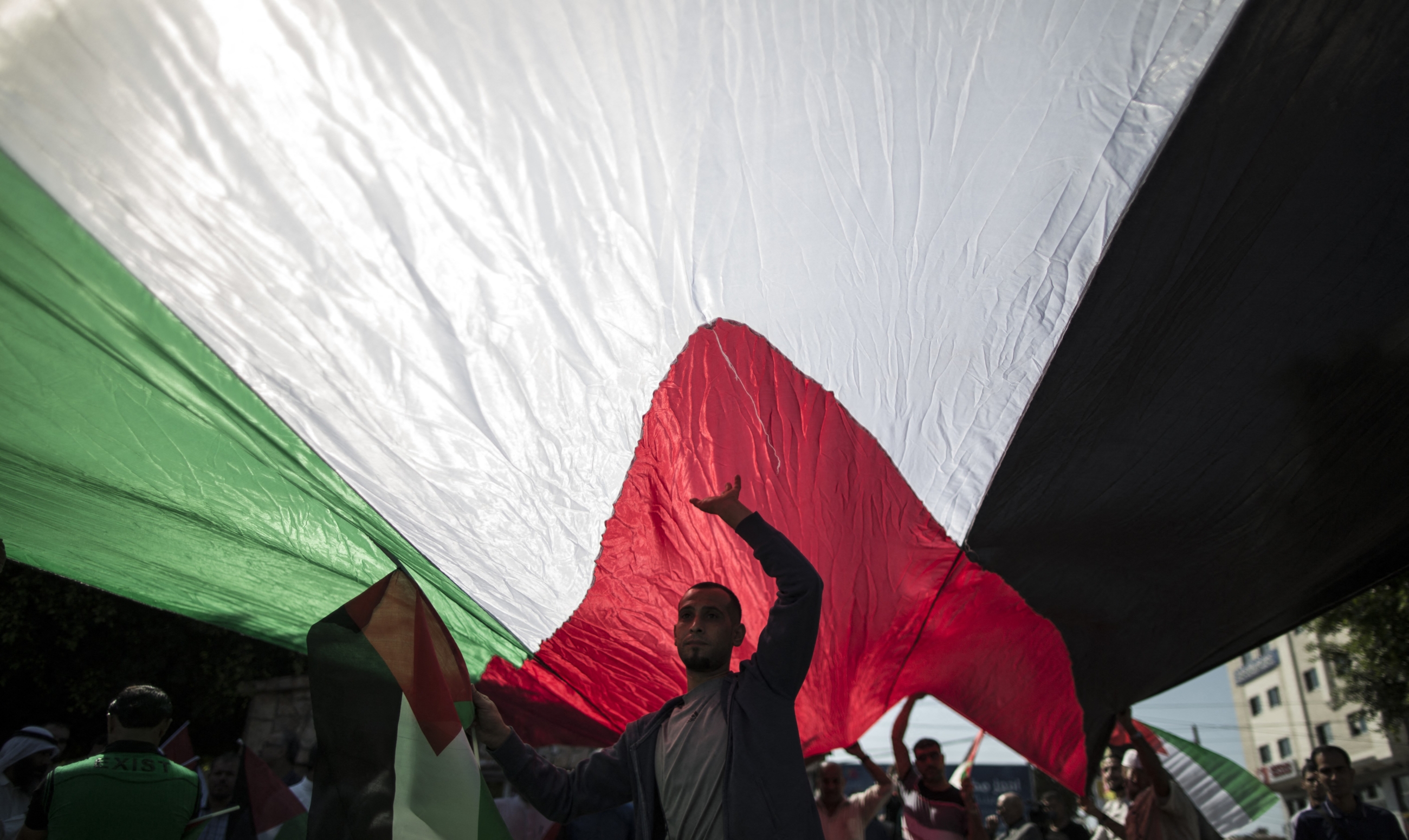
It is common wisdom to say that unity is preferred to division in political struggles. Differences, we are told, must be bracketed in the fight against a common enemy. This dictum is true when applied to forces who share an understanding that the enemy must be resisted and vanquished.
Certainly, no one would have expected the Algerian National Liberation Front to establish unity with the Algerian collaborators with French colonialism, known as Harkis. In South Africa, the resisting African National Congress refused to unify with the Inkatha Party, rightly seen as a collaborator with the apartheid regime.
How are these new elections not a repeat of the same events that took place between 2005 and 2007?
Yet, in the Palestinian case, Hamas, which professes resistance against the Israeli occupation, has been called upon to join some "national unity" with Fatah, which controls the Palestinian Authority, and whose "sacred" mission for decades has been to coordinate with the Israeli military occupation to quash anti-Israeli Palestinian resistance.
As anti-colonial resistors have never unified with collaborators in anti-colonial struggles, not in South Africa and Rhodesia, not in Kenya, not in Vietnam, in the Palestinian case, this is precisely what has been unfolding recently.
Two weeks ago, various Palestinian political groups met under official Egyptian sponsorship in Cairo to devise a plan for a "national partnership" to hold elections for the Palestinian Authority (PA) in the Israeli-occupied West Bank and the Israeli-besieged Gaza Strip (it is still unclear if Palestinians in the Israeli-occupied city of East Jerusalem will be allowed to participate). The new elections were called for by the unelected PA leader, Mahmoud Abbas, whose electoral mandate as PA "president" ended in January 2009.
New MEE newsletter: Jerusalem Dispatch
Sign up to get the latest insights and analysis on Israel-Palestine, alongside Turkey Unpacked and other MEE newsletters
Don't mention occupation
The two major contending parties, Fatah and Hamas, last competed in the elections of 2006, and continue to claim that they follow opposite strategies to end the Israeli occupation.
Fatah and the PA insist that the only way to end the Israeli occupation of the West Bank, Gaza, and East Jerusalem is to collaborate with and help the Israeli military occupation to suppress and end all violent and even peaceful Palestinian resistance, including the international boycott of Israel.
The political and military wings of Hamas, in contrast, insist that the only way to end the occupation is resistance in its myriad forms, military, civilian, international solidarity, and international boycott, among others.
What then is the basis on which these two major antagonistic strategies could be unified against the Israeli occupation as part of what the meeting’s final communique refers to as Palestinian "national unity"? This is all the more ironic as the whole affair smacks of a deja vu of the events that had transpired in 2005-2007!
The most glaring aspect of this month’s communique is that it does not mention the Israeli occupation except once cursorily in point 12, stating that once the future parliament is elected, the Palestinian factions will "submit to it a recommendation to address the matter of the Palestinian parliamentarians imprisoned by the Occupation".
Otherwise, the long and detailed communique speaks only of elections procedures and the necessity that all parties accept the results; it never makes mention of the fact that the elections will be held under Israeli military occupation or that Fateh rejected the results the last time elections were held. The word Israel itself is nowhere in sight.
That the assembled groups saw fit to include a reminder to themselves that they still constitute a 'national liberation movement' is nothing short of laughable
Just as the Israeli occupation hardly makes an appearance at all in the communique, neither does Palestinian resistance to it, mentioned only cursorily in Point 1, whereby a future meeting of the Palestinian factions scheduled in Cairo next month to discuss the election/selection of a new membership for the PLO’s Palestine National Council “in order to activate and develop the PLO, and strengthen the national resistance programme, based on our being a national liberation movement”.
What that national resistance programme is, it would seem, will be defined at the meeting in March, and is clearly not the basis of the current agreement. That the assembled groups saw fit to include a reminder to themselves that they still constitute a “national liberation movement” is nothing short of laughable.
But what is the purpose of this "national unity"? How are these new elections not a repeat of the same events that took place between 2005 and 2007?
The leadership of Hamas, which rejected the Oslo Accords, understood that the purpose of the formation of the PA by the accords was so that the latter would function as a tool of the Israeli occupation, a goal the PA has fulfilled with aplomb.
Hamas also understood that the elections, which grant the Palestinians no control over their land or water, let alone the continued theft of both by Israeli settler-colonialism, is more of a public relations stunt that benefits Israel and its PA collaborators. This is why Hamas refused to participate in the 1996 PA presidential and parliamentary elections or the January 2005 presidential elections that followed the death of Yasser Arafat in 2004.
No historic legitimacy
Lacking the historic legitimacy of Arafat, Abbas needed to legitimise his rule. As the Israelis decided in 2005 to withdraw their occupation troops from inside the Gaza Strip and redeploy them around it, transforming the Strip into the open-air prison that it is today, there was a movement toward some form of national unity between the resisting Hamas and the collaborator Fatah, each hoping to dislodge the other from their positions.
As a result, 12 Palestinian factions, including Hamas and Fatah, met in Cairo in March 2005 under Egyptian sponsorship to hammer out their differences on the voting system to be used in elections in which they would all participate. They issued the Cairo Declaration which agreed on an electoral system that partially included proportional representation and on "activating and developing" the PLO, the very same language used in this month’s communique.
Unlike the most recent agreement, however, the 2005 declaration did not forget to affirm "the right of the Palestinian people to resistance in order to end the occupation, establish a Palestinian state with full sovereignty with Jerusalem as its capital, and the guaranteeing of the right of return of refugees to their homes and property.” They also registered their opposition to Jewish settler-colonialism and the Apartheid Wall, as well as the "Judaization of Jerusalem".
With the increasing alienation of the population from the PA, whose financial corruption and collaboration with the Israelis had intensified since the Second Intifada, the increasing divisions within Fatah - with younger pro-Oslo leaders like Marwan Barghouti (jailed and convicted by the Israelis for his alleged role in the Second Intifada) posing as rivals to its traditional leadership - and the increasing popularity of Hamas, the US, especially its right-wing hawkish then secretary of state, Condoleezza Rice, insisted that elections be held in January 2006.
Quashing Hamas
At the time, the US hoped that Fatah would quash Hamas, based on polls that erroneously predicted a Fatah victory. If realised, such a victory would have eliminated Hamas and the resistance once and for all from the scene. USAID contributed $2.3m under various false guises (like “tree planting” and a “soccer tournament”) to support the election of Fatah and to bolster Abbas (which clearly was not seen as "foreign" interference or meddling in local elections).
Fatah and the PA, and their Israeli, US, and Arab regime sponsors have everything to gain from this new arrangement; Hamas has everything to lose
It was the hubris of the US and its clients, however, that was quashed in the elections. Hamas was victorious, winning 74 seats in the Legislative Council while Fatah won 45.
Fatah and Abbas began to harass the elected Hamas leaders and arrest their supporters. The Israelis arrested many of the Hamas candidates who won parliamentary seats as well as Hamas ministers of the new cabinet, formed in March 2006. By August, Israel had kidnapped and detained 33 Hamas parliamentarians (25 perecent of the legislative council members) and eight cabinet ministers. It also prevented Gaza members of the legislative council from coming to the West Bank. Without a quorum, the council could not meet.
The US and Europeans promptly cut off aid to the Palestinian Authority. By June 2007, Abbas illegally dismissed the elected Hamas government and replaced its prime minister with the unelected former World Bank operative Salam Fayyad.
The CIA-trained PA security forces attempted, with the help of Jordanian and Egyptian intelligence, to take over Gaza and the West Bank by force and overthrow the elected government. After months of Israeli kidnappings of Hamas officials and Fatah harassment of Hamas cadres in the West Bank, Hamas succumbed to the coup in Ramallah but, due to valiant Hamas resistance, remained in charge in Gaza.
With the support of Egypt and Mahmoud Abbas and his loyalists, Israel then imposed the ongoing punishing siege on Gaza in an attempt to force Hamas’ surrender or collapse by inflicting intense suffering on the population.
These events unfolded under the best of conditions, at a time when the US, EU, UN, and Russia were invested in some modus operandi in the occupied Palestinian territories and when the Arab countries had not yet shamelessly and obsequiously declared their undying love for Israel.
In fact, the Cairo Declaration of 2005 offered Hamas the basic ingredients of justice for the Palestinians and support for Palestinian rights, whereas the Cairo Communique of 2021 does not concede even one of those rights.
Why then is a Hamas political leadership that is committed to resistance seeking "national unity" with Fatah, which has shown unwavering commitment to collaborate with the Israeli enemy to oppress the Palestinian people? Fatah and the PA and their Israeli, US, and Arab regime sponsors (especially Egypt and Jordan) have everything to gain from this new arrangement; Hamas has everything to lose.
In preparation for the elections, Israel, in a repeat performance of 2005-2007, has already gone on a rampage in the last couple of weeks kidnapping and detaining Hamas leaders, and other leftist anti-PA activists across the West Bank.
A unity in collaboration?
If Hamas loses the elections, due to all kinds of illegal manoeuvring by Israel, the US, and Fatah, the pressure on it to lay down its weapons (a perennial Israeli and US condition to end its isolation and criminalisation) will increase by leaps and bounds. If it wins, it will be faced with a repeat performance of the coup of 2006-2007.
As Fatah and the PA have not relented on their collaboration with the Israeli occupation nor on their outright enmity to Palestinian resistance, it stands to reason that the Hamas political leadership is the one that relented.
Any form of “national unity” between Hamas and Fatah under these conditions would be nothing short of unity in collaboration with the Israeli occupiers.
If so, a major fissure will soon be created between the Hamas political leadership and its independent military leadership: the former will join the ranks of the collaborators, while the latter, which has not supported efforts at joining the collaborators, will remain steadfast resistors against Israel’s ceaseless efforts to cancel out all of the national and political rights of the Palestinian people.
The views expressed in this article belong to the author and do not necessarily reflect the editorial policy of Middle East Eye.
This article is available in French on Middle East Eye French edition.
Middle East Eye delivers independent and unrivalled coverage and analysis of the Middle East, North Africa and beyond. To learn more about republishing this content and the associated fees, please fill out this form. More about MEE can be found here.



